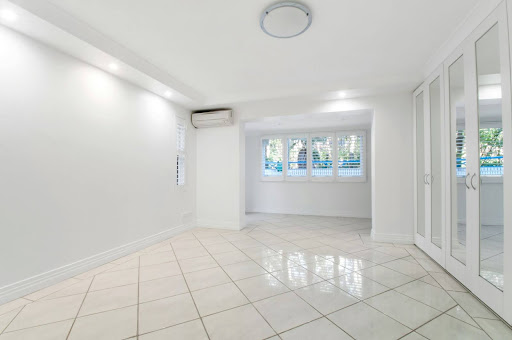Your air conditioning unit is a vital component of your home. For many, it keeps the home warm during the winter and cool during the summer, so if it breaks down, it can often cause a lot of unwanted trouble.
With that in mind, if you want to stay more informed about when it’s best to consider an AC repair for your home, then there are some common early warning signs and tips that will help keep your AC in good condition all year round.
Common early warning signs your AC is in trouble
There are typically several common early warning signs that indicate your AC is in trouble. These include the following:
Performance and efficiency issues
Weak or warm airflow is usually an indicator that something’s wrong with your appliance. Air from vents that feel weak or that churn out air that’s warm instead of cool is often likely due to a blocked filter, a low refrigerant, or a failing motor.
If the AC turns on and off repeatedly without reaching the desired temperature, then this might indicate an issue with the thermostat or a more serious issue that involves the system itself.
Another tell-tale sign that something’s wrong is a change in your bills. If they’ve suddenly crept up, then this might mean your thermostat is working harder and wasting more energy as a result.
Unusual noises or smells
Listening to the sounds that your AC makes is an important one too, especially if the noise is banging, squealing, grinding, or clicking. You’ll soon know if the noises that are being made aren’t quite the usual noises you expect to hear.
As well as the strange noises, it’s good to be aware of any foul odors, like a musty smell, which can often indicate mold growth from excess moisture in the ducts. A burning smell will often point to a dangerous electrical problem that needs addressing.
Visible problems
With visible problems, these are often the most apparent sign that something is wrong because ignoring them would be hard to do.
Water leaks, for example, in the form of moisture or puddles around the indoor or outdoor unit, can often mean a clogged drain. Frost or ice buildup on the coils or refrigerant lines is a sign of restricted airflow or low refrigerant.
Look for any visible damage to the unit, from rust or damaged wiring, as these could be a sign of more serious failures.
Why quick repairs save money in the long run
Quick repairs can often save a lot of money in the long run, and so with that being said, here’s why it can help your finances if you get ahead of your fixes sooner rather than later.
It prevents cascading damage
With quick repairs, you can stop damage from escalating further and costing you more money. For example, a small leak can cause water damage to your home’s structure. A minor issue could lead to a catastrophic one.
A small leaky faucet could turn into water damage, costly structure repairs, and mold growth, all of which you want to actively avoid.
Reduces overall costs
By getting on top of problems fast, you’ll reduce the overall cost that comes from these issues. Routine maintenance and smaller repairs can help prevent the need for complete replacements and further damage that can come from not addressing the issue sooner.
You’ll also help to avoid emergency and overtime fees. Emergency repairs are often more expensive due to the urgency, which contributes to higher labor costs and potentially needing to pay for parts on gas over time.
Extends the life of your assets
Extending the AC is another great benefit when it comes to keeping your household costs low. By regularly maintaining the AC and looking after it with regular repairs, you increase the longevity of the appliance, while also maintaining its value.
Minimizes downtime and interruptions
Finally, being able to minimize any downtime or interruptions is an important one when it comes to your AC. Avoiding operational disruptions is often essential for those who run a business, and it also helps households that rely heavily on their AC to function throughout the year comfortably.
Simple maintenance steps to avoid future breakdowns
When it comes to maintenance of your AC, here are some simple maintenance steps that help avoid future breakdowns.
Clean regularly and lubricate
To keep your AC in good condition, make sure you’re cleaning it regularly. Dust and grime can build up, impeding its performance as a result, so a regular clean will help reduce the likelihood of problems occurring.
Be sure to lubricate moving parts to help prevent wear and tear from happening.
Replace worn components
Being proactive and replacing any worn components will certainly help when it comes to keeping the longevity of the appliance in check. It’s best to prevent the issues from turning into cascading failures and replace the worn parts immediately. An AC repair is helpful to get a service provider out so that it’s done properly.
Follow manufacturer guidelines
Be sure to follow manufacturing guidelines when it comes to your specific equipment. Knowing when and how to perform maintenance is crucial. Be sure to change filters by replacing them regularly.
Check and calibrate settings
Checking and calibrating your thermostat settings, as well as testing safety controls, will ensure everything is working as it should. It’s also worthwhile looking for signs of wear and tear, as well as leaks and damage.
Planning and tracking
Keeping a log of all maintenance activities is useful so that you know when to check back in with your appliance. Prioritize critical assets and focus on the most important issues so that you’re saving yourself money.
An AC repair can be a lot more affordable if you’re looking after your air conditioning unit regularly. Be aware of your AC’s usual behavior and when there’s any sign visible or otherwise that something’s not quite right, then that’s when you should seek professional help quickly to avoid costly replacements.






